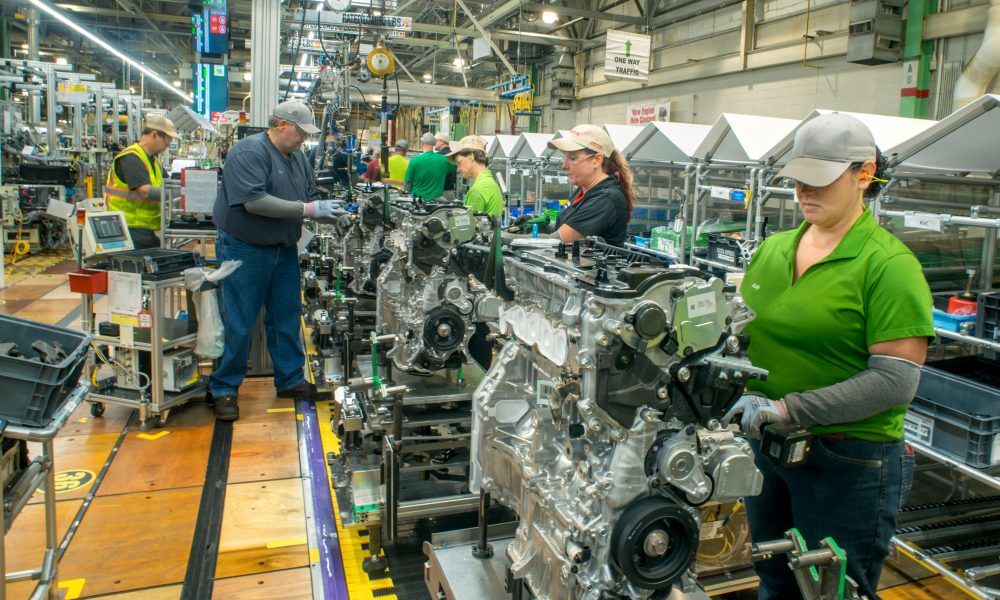Higher regional content reduced imports of essential parts from non-USMCA countries, according to a USITC analysis.
Lower foreign purchases of these products from the USMCA region were due to tighter rules of origin.
Essential parts account for approximately 40% of vehicle cost and include engines, transmissions, body and chassis, axle, suspension systems, steering systems, and advanced batteries.
Imports of essential parts
The USITC model estimates that the rules of origin reduced USMCA imports of essential parts from non-USMCA countries in 2024 because the sourcing of these essential parts from USMCA producers helped light vehicle manufacturers comply with the rules of origin.
Most of the sourcing changes reported to the USITC were displacements. These were movements from countries outside the USMCA to nations within the bloc.
Only a fraction were internal adjustments within the USMCA. These shifts, focused on engines, responded to labor value content requirements.
According to model estimates, 436,640 units of engine imports from countries outside the USMCA to the region were reduced in 2024.
In addition, 210,977 fewer engines were imported into the United States from USMCA partners.
The estimated impact on imports of essential parts to Mexico, the United States and Canada from non-USMCA countries in 2024, in number of parts, is as follows:
- Engines: -436,640.
- Transmissions: -607,478.
- Body and chassis: -246,719.
- Axles: -398,852.
- Suspension systems: -91,124.
- Steering systems: -258,699.
- Advanced batteries: 0.
In 2024, imports of advanced batteries from countries outside the USMCA were not affected by the rules of origin.
According to the survey, changes in sourcing did occur. However, they applied to model lines that were not yet available in the North American market during that year.
Therefore, the rules did not impact the trade flow of this key component in that period.
Rules of origin
The USMCA imposes unique global rules on the automotive sector. Among them, it requires a 75% Regional Value Content (RVC) for light vehicles. It also calls for a 75% RCA for essential parts.
In addition, at least 70% of the steel and aluminum purchased by automakers must be of regional origin. This is in addition to a Labor Content Value (LCCV) of 40 percent.
However, the treaty also provides for some flexibility. At their express request, vehicle producers may access an alternative transition regime. This scheme grants a period of up to five years-from 2020 to 2025-for carmakers to adjust their production and comply with the new rules of origin.

